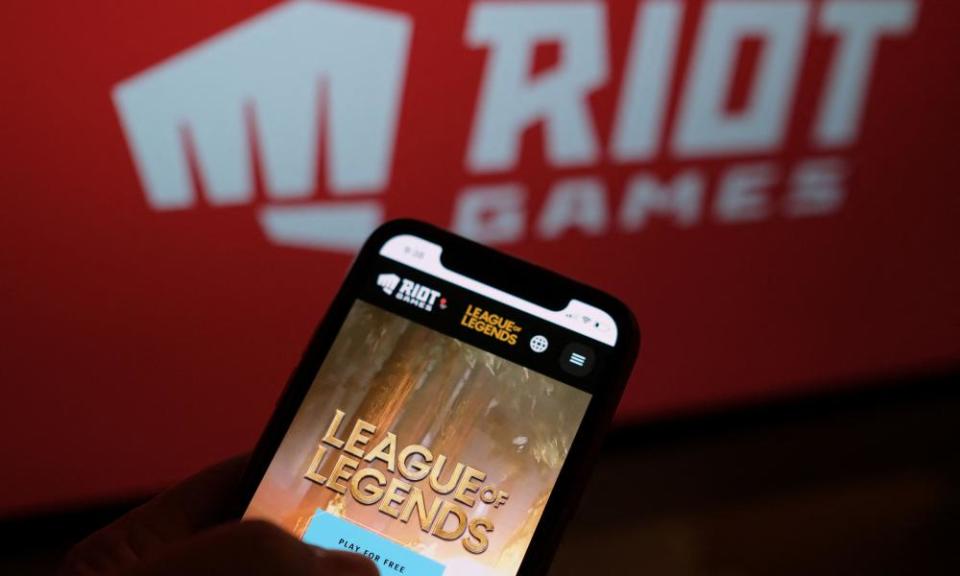Riot Games to pay $100m to settle gender discrimination lawsuit

Maker of League of Legends will pay $80m to California state agencies and more than 2,000 female employees
A leading video game maker, Riot Games, has agreed to pay $100m (£74m) to settle a gender discrimination lawsuit with California state agencies and more than 2,000 current and former female employees.
Under the agreement, the company, which makes games including League of Legends, will pay $80m to members of the 2018 class action suit and about $20m towards legal fees.
The settlement is awaiting final approval, which is expected at a hearing at a Los Angeles court in the next few months.
The California state civil rights agency, the Department of Fair Employment and Housing (DFEH), hailed a “historic agreement” which it said would send a powerful signal to the gaming industry and others.
Kevin Kish, the director of the DFEH, said: “If entered by the court, this decree will compensate employees and contractors affected by sex discrimination and harassment, ensure lasting change in this workplace, and send the message that all industries in California, including the gaming industry, must provide equal pay and workplaces free from discrimination and harassment.”
The lawsuit, which was followed by two inquiries by California state agencies, was filed by female employees more than three years ago. It alleged gender discrimination, unequal pay, harassment and retaliation.
“I am so glad we achieved this first step toward justice for the women of Riot Games,” said Jes Negron, a plaintiff.
“I hope this case serves as an example for other studios and an inspiration for women in the industry at large. Women in gaming do not have to suffer inequity and harassment in silence – change is possible.”
Related: Activision Blizzard scandal a ‘watershed moment’ for women in the gaming industry
Genie Harrison, an employment and sexual harassment lawyer representing the plaintiffs, said: “This is a great day for the women of Riot Games – and for women at all video game and tech companies – who deserve a workplace that is free of harassment and discrimination.”
As part of the settlement, the company agreed to workplace reforms including monitoring by a third party for three years, pay transparency and “limiting subjectivity and implicit bias in hiring and selection processes”.
Riot Games agreed to settle the suit in 2019 for $10m but the agreement was blocked by the DFEH, which argued in a court filing that victims should be entitled to up to $400m.
In a statement on Monday, Riot Games, which is owned by the Chinese internet company Tencent, said: “In an effort to drive ongoing transparency and accountability, Riot has also committed to having its internal reporting and pay equity processes monitored by a third party jointly approved by Riot and the California Department of Fair Employment and Housing for three years.”
In an email to employees seen by the Washington Post, five company executives responded to the settlement.
“We want to acknowledge that the timing of this announcement isn’t ideal,” they reportedly wrote. “The final details of the agreement came together quickly, and we wanted you to hear about it from us directly rather than read about it in the news while on break.”

 Yahoo Finance
Yahoo Finance 